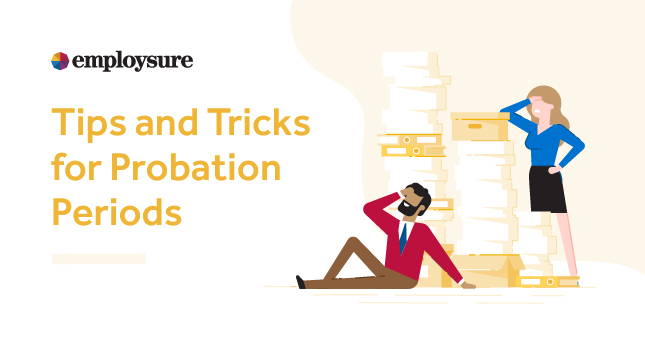
Trial and probation periods are an important aspect of employment but can be confusing for a lot of employers, particularly when it comes to determining how and when to use which type and their associated requirements. While trial and probationary periods can protect employers from the pitfalls associated with hiring the wrong person, they can also cause concern if not applied correctly.
First and foremost, understanding the difference between a trial period and a probationary period is paramount.
Trial Period
New employees can be placed on trial period for up to 90 days. You should seek advice regarding trial periods for casual staff or if you have a collective agreement in place.
The trial period can last up to 90 days but in order to meet your employer obligations, it must be agreed upon in the employee’s written employment agreement, which needs to be signed prior to the employee commencing working.
It is important to know that by including a trial period and ensuring it is part of the employment agreement, an employee cannot bring a personal grievance for unjustified dismissal against their employer at the end of the period.
A beekeeping business in Western Bay of Plenty was recently found to have unjustifiably dismissed an employee who they believed was on a 90 day trial period. The Employment Relations Authority (ERA) found that when the worker began his employment, he was requested to sign an employment agreement which did not include a pay rate, nor make mention of a trial period, making a supposed trial period irrelevant.
In order for a trial period to be considered valid, it must be in writing, included in your employee agreements and specify:
the full length of the trial period (which cannot exceed 90 days)
a clause stating that the employee may be dismissed during the trial period, including how much notice must be given (keeping in mind that reasonable notice must be given)
Employers are required to act in ‘good faith’ for the duration of the trial period. Acting in good faith during the trial period includes:
providing the employee sufficient time to read and sign the employment agreement outlining the trial period
taking into consideration any concerns or questions the employee has regarding the trial period
providing the employee with feedback during the trial period
Whilst on a trial period, employees are still entitled to the same benefits of a permanent staff member, such as holiday pay and sick leave.
In a recent case, an employee was employed for only one day before signing up to a trial period. However, once dismissed during this trial period, she successfully argued that she was not a ‘new employee’ and as such her dismissal was unjustified.
Employers do not need to provide the employee under a trial period with a written statement of reasons for their dismissal, however, are required to provide an explanation as to why the employee has not been successful.
Probationary period
Probation periods are the perfect way to find out if an existing employee can do a new job, or for existing employees who are changing jobs.
The timeframe of a probationary period is not limited to 90 days and can be longer, but only if it is reasonable and agreed upon by both the employer and employee. Once again, this period must be included in employment agreements, therefore it is important to ensure you update these prior to your employee commencing their new role.
Employees are entitled to bring a personal grievance against their employer for unjustified dismissal in relation to aspects associated with the probationary period. All aspects associated with signing up to probationary periods must be managed carefully and must be confirmed in writing prior to commencement.
Any dismissal under a probationary period should follow a fair and reasonable process, as an employee under a probationary period has access to lodge a personal grievance in respect of their dismissal.
It is recommended to seek specific advice when placing an existing employee on a probationary period, as specific terms and conditions may need to be included in the employee’s employment agreement in relation to this.
Employsure recommends seeking professional advice and assistance when defining employment agreements that include trial and probationary period. Employsure is here to help with all your obligations surrounding this so contact them today on 0800 005 215.

Get Workplace Advice Now
Call Our Team of Expert Advisers Who Will Help You with Your Workplace Questions
